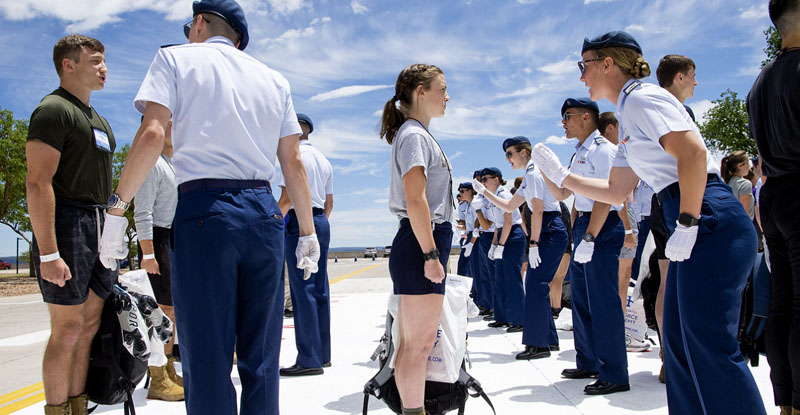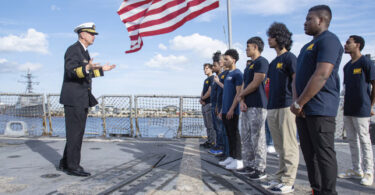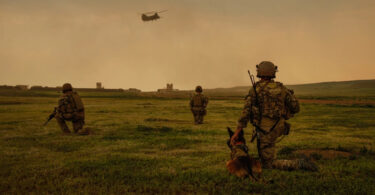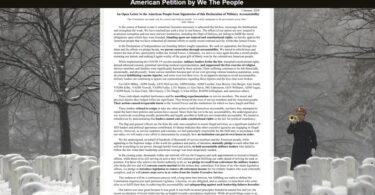By Scott Sturman
STARRS Board of Advisors
“Game of Thrones” is one of the most popular and successful cable television series in history. One of the show’s heroines, Arya Stark, enters an apprenticeship in hopes of joining the Faceless Men, an elite guild of assassins. First she must prove her worthiness by relinquishing her identity to the organization.
As graphically depicted in the series, she endures unremitting physical and mental torture to test her resolve. Throughout the ordeal her mentor asks, “Who Are You?” Only when she attains complete self-denial and melds her consciousness with the Faceless Men, will her claim, “I am no one,” be deemed genuine.
As harsh as the physical and physiologic challenges Arya faces are, how do they compare with a Basic Cadet entering a United States military academy?
She is confronted with only two expectations: to blindly follow orders and to subsume her persona into a cult. She bears no responsibility to her peers, no constraints imposed by morality or the law, no concept of self-worth, and no ability to exercise compassion or discretion. Hers is one puzzle with two pieces while a cadet’s is one puzzle with many permutations.
The intensity of training at military academies has changed over the past 50 years, but the argument will be made that today’s cadets face a far different and perhaps more difficult journey than the classes of yesteryear.
The class of 1972 entered the Air Force Academy in June 1968. At that time the country was embroiled in the Vietnam War and Herbert Marcuse’s radicals brought chaos to American college campuses. Upon admission we became disengaged from our civilian peers by both our conspicuous appearance and contrasting sense of moral obligation to our country.
Only three of five of cadets who began in June 1968 graduated four years later. Training was intense in all aspects, and cadets were subjected to incessant ridicule, discomfort, and intimidation. Unfair, capricious, and irrational treatment quickly identified those who could withstand a pressure filled environment and those who could not. Becoming “no one” and identifying with one’s class was a source of strength and the key to overcoming self-doubt and the temptation to resign.
But what did we of the class of 1972 not experience?
No officer or member of the Department of Defense publicly questioned the legitimacy of the country’s founding, and despite the turbulent times, civilians did not intervene with the purpose of politicizing and inculcating the military establishment with reformulated Marxist doctrine. Communism was recognized for what it is: a totalitarian system based on false premises that has led to the death of tens of millions of innocent people.
One’s phenotype, the least important human characteristic, was just that – unimportant. The words Unus pro omnibus, omnes pro uno (one for all, all for one) typified the attitude toward fellow cadets, rather than Critical Race Theory, which breeds hate, division, and suspicion.
More recent classes attending USAFA experience intense training, but it arguably lacks much of the overt hazing, corporal punishment, and physical restrictions imposed on classes of my era. Yet these cadets face hurdles more subtle and insidious than what we encountered 50 years ago. Social media and the political establishment, as well as the upper echelons of military leadership, including the Secretary of Defense, the Chairman of the Joint Chiefs of Staff, and the Chief of Naval Operations overtly promote and defend Critical Race Theory. Traditional concepts and responsibilities unique to the military are blurred, and cohesion among class members is threatened by the teachings of Marcuse and Delgado.
Within the Academy itself, cadets live in an environment of mixed messages. On the one hand, they are inspired by the likes of Robin Olds and Chuck Yeager to fly, fight and win, and support and defend the Constitution. While on the other, the football coaching staff, with the apparent consent of high ranking officers, publicly extols Black Lives Matter, and the Dean of Academics lauds the distribution to all Basic Cadets of the book They Called Us Enemy.
Cadets of today face obstacles more complex and ambiguous than the fictional Arya. “No one” becomes “everyone” as they search to answer multiple masters with competing priorities. In many ways the gauntlet they pass is more treacherous than that of cadets attending the Academy decades ago. Our path was difficult, but the foundations of faith, duty, country, and loyalty to fellow classmates remained undisturbed. Today’s cadet lives in a world described in Yeats’ poem, “The Second Coming,” where values are twisted and contorted by forces all too willing to undermine the United States military.








Leave a Comment